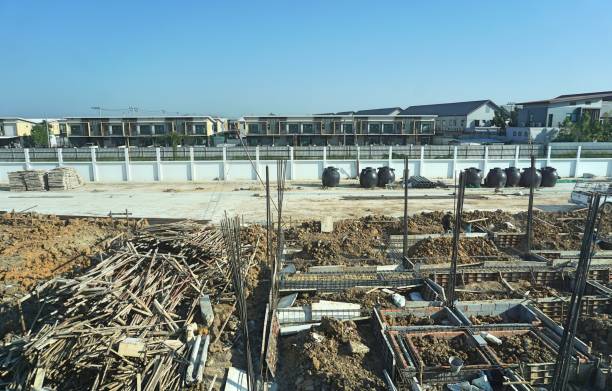Excavating trenches is a fundamental aspect of various construction projects, and the right equipment can significantly impact efficiency and precision. Trenchers, specialized machines designed for digging trenches, play a crucial role in these operations. However, the decision to invest in trenching equipment versus opting for “trenchers for rent” presents construction professionals with a strategic choice. In this article, we explore the compelling advantages of choosing trenchers for rent in construction projects.
Financial Prudence:
Investing in heavy machinery like trenchers involves substantial upfront costs, making it a significant financial commitment. Trenchers for rent offer a financially prudent alternative, allowing construction teams to access the necessary equipment without the burden of ownership. This cost-effective approach is particularly beneficial for projects with limited budgets or short-term trenching needs.
Tailored Solutions for Diverse Projects:
Construction projects vary widely in scope, size, and trenching requirements. Trenchers for rent provide a diverse range of options, ensuring that construction professionals can choose equipment that precisely fits the demands of their specific project. From walk-behind trenchers for confined spaces to ride-on models for extensive trenching, the versatility of rental options caters to diverse project needs.
Immediate Availability and Time Efficiency:
In the fast-paced world of construction, time is often of the essence. Trenchers for rent offer immediate availability, eliminating the delays associated with purchasing and equipment acquisition. Construction teams can have the trencher on-site when needed, ensuring that trenching operations commence promptly and project timelines are met efficiently.
Maintenance-Free Operation:
Owning and maintaining heavy machinery can be a time-consuming and resource-intensive task. Trenchers for rent shift the responsibility of maintenance to the rental service, providing construction professionals with the assurance of well-maintained equipment. This maintenance-free operation minimizes downtime, ensuring that the trencher operates at peak efficiency throughout the rental period.
Access to Advanced Technology:
The construction industry is continually evolving, with technological advancements enhancing the capabilities of machinery. Trenchers for rent often feature the latest technology, allowing construction professionals to access cutting-edge equipment without the long-term commitment of ownership. This ensures that projects benefit from the efficiency and advancements offered by state-of-the-art trenching technology.
Flexible Rental Periods:
Construction projects are dynamic, and trenching needs may vary throughout different stages of a project. Trenchers for rent provide the flexibility to adjust rental periods based on project requirements. This adaptability allows construction teams to optimize resource utilization, ensuring that they have the trencher for the necessary duration without unnecessary costs.
Environmentally Conscious Practices:
Renting trenchers aligns with environmentally conscious construction practices. By promoting the shared use of equipment through rentals, the overall demand for new machinery production is reduced. This sustainable approach contributes to minimizing the environmental impact associated with manufacturing, transportation, and disposal of heavy machinery.
Conclusion:
Trenchers for rent have emerged as a strategic and efficient solution for construction projects requiring trenching capabilities. From financial prudence and tailored solutions to immediate availability and access to advanced technology, renting trenchers provides a range of advantages. Construction professionals can navigate projects with ease, enjoying the performance of high-quality equipment without the long-term financial and maintenance commitments. The choice to rent trenchers is not just a practical one; it’s a strategic decision that aligns with the evolving needs of the construction industry.













